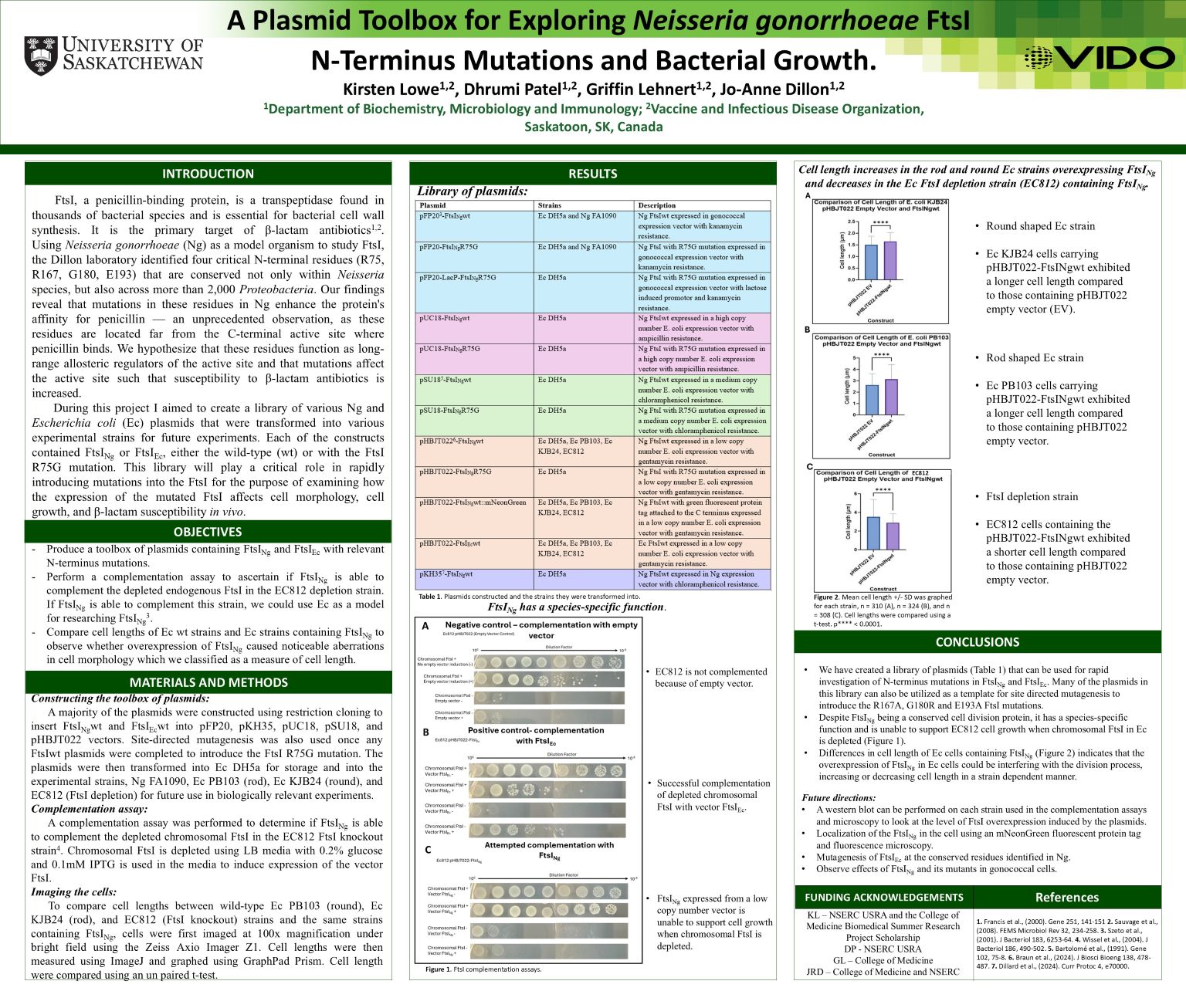
A Plasmid Toolbox for Exploring Neisseria gonorrhoeae FtsI N-Terminus Mutations and Bacterial Growth
Kirsten Lowe
FtsI, a penicillin-binding protein, is a transpeptidase found in thousands of bacterial species and is essential for bacterial cell wall synthesis. It is the primary target of β-lactam antibiotics. Mutations at four critical N-terminus residues (R75, R167, G180, E193) conserved not only in Neisseria species, but also across more than 2,000 Proteobacteria, were identified in vitro as having the ability in Neisseria gonorrhoeae (Ng) to enhance the protein’s affinity for penicillin. In my research, I aimed to create a toolbox of various Ng and Escherichia coli (Ec) plasmids containing FtsINg, with and without mutations at these four critical residues, using restriction cloning and site-directed mutagenesis. We have created a library of plasmids that can be used for rapid investigation of N-terminus mutations in FtsINg and FtsIEc. Many of the plasmids in this library can also be utilized as a template for site directed mutagenesis to introduce the R75G, R167A, G180R and E193A FtsI mutations. Our data indicates that FtsINg is unable to support cell growth in EC812 with depleted chromosomal FtsI, demonstrating that despite being a conserved replication protein, FtsINg is species specific. Through increases and decreases in Ec cell length, our data also indicates that FtsINg being overexpressed in the cell could be interfering with the division process.
